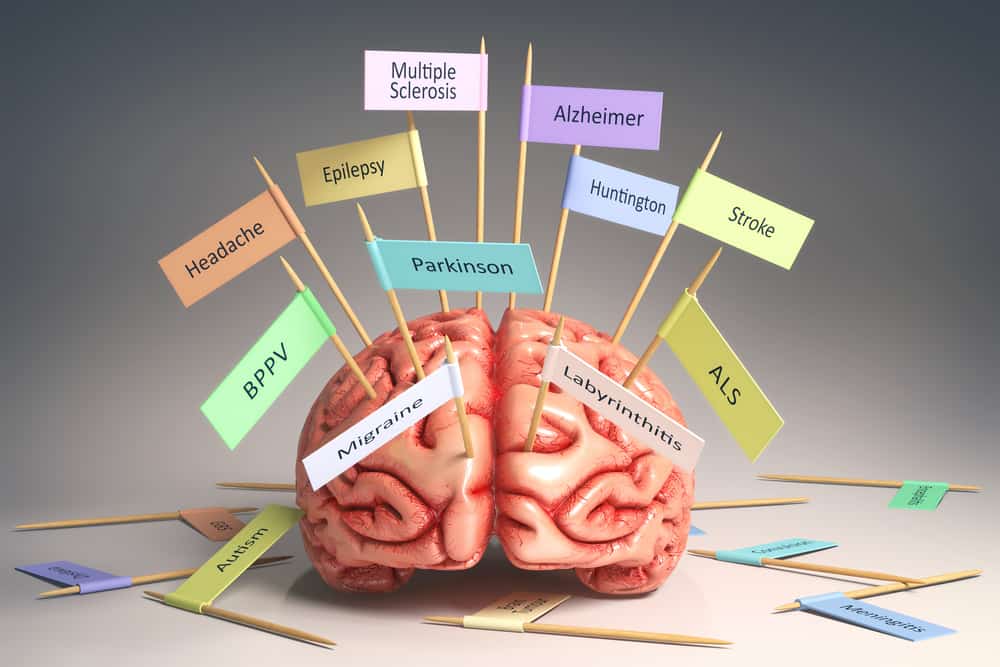
The signs of being intoxicated are typically pretty obvious – flushed cheeks, dizziness, disorientation, slurred speech, memory problems. While it usually requires actually drinking alcohol to reach this state, a rare disease actually creates these symptoms, making someone very drunk without consuming any alcohol at all. This is Auto-Brewery Syndrome (ABS).
For those who suffer from this syndrome, their gut fungi (which is yeast) ferments ingested carbohydrates (similar to the way beer is made through fermentation), resulting in production of ethanol. The ethanol production causes the person to become inebriated with all the same symptoms of actual alcohol intoxication, including the possibility of drunk driving.
For those who suffer from this syndrome, their gut fungi (which is yeast) ferments ingested carbohydrates (similar to the way beer is made through fermentation), resulting in production of ethanol. The ethanol production causes the person to become inebriated with all the same symptoms of actual alcohol intoxication, including the possibility of drunk driving.
What is Multiple Sclerosis?
Multiple Sclerosis (MS) is a disease in which the immune system attacks the central nervous system (CNS). This could make it an autoimmune disease, although that is somewhat up for debate because typically autoimmune diseases mean the body is reacting to antigens (which are proteins that cause an immune response) as if they were foreign to the body. But there has yet to be an identified antigen in MS.
The immune system attacks the myelin (the sheath surrounding and protecting nerve fibers), myelin producing cells, and underlying nerve fibers through T cells, which are a type of white blood cell in the immune system. T cells become overly sensitive to the proteins within the CNS, and begin causing inflammation, then attracting and damaging immune cells that go to the site of inflammation, including myelin and nerve fibers. The damaged nerve fibers then form sclerosis, which is scar tissue.
The immune system attacks the myelin (the sheath surrounding and protecting nerve fibers), myelin producing cells, and underlying nerve fibers through T cells, which are a type of white blood cell in the immune system. T cells become overly sensitive to the proteins within the CNS, and begin causing inflammation, then attracting and damaging immune cells that go to the site of inflammation, including myelin and nerve fibers. The damaged nerve fibers then form sclerosis, which is scar tissue.
What are symptoms of MS?
Since nerve fibers and the myelin sheath are getting damaged from T cells, the nerve impulses sent to and from the brain and spinal cord get disrupted, which creates many possible symptoms. There is no specific path of symptoms or symptom progression in MS patients.
Most common symptoms include:
Less common symptoms include speech problems, tremor, respiratory issues, headaches, problems swallowing, seizures, and hearing loss.
Most common symptoms include:
- Fatigue
- Numbness or tingling (in the face, body, or extremities) – this is often one of the first symptoms experienced by those diagnosed with MS
- Weakness (as a result of unused muscles or nerve damage that prevents stimulation of muscles)
- Dizziness and vertigo
- Sexual problems
- Chronic pain
- Emotional changes (including depression, mood swings, irritability)
- Walking difficulties
- Spasticity (feeling stiff or having involuntary muscle spasms – typically in the legs)
- Vision problems
- Bladder dysfunction
- Bowel problems (loss of control and/or constipation)
- Cognitive changes (problems with processing new information, problem solving, focus, and perceiving environment accurately)
Less common symptoms include speech problems, tremor, respiratory issues, headaches, problems swallowing, seizures, and hearing loss.
What causes MS?
The specific cause of MS is still unknown, but researchers believe several factors are involved. They are studying immunologic factors, to see which immune cells are attacking and why they are attacking. They have identified some specific factors, but are still making an effort to gather more information to figure out a cure based on the cause.
Researchers also examine environmental factors – MS occurs more frequently in areas farther away from the equator, which means that vitamin D could play a role. Those who live closer to the equator get more sunlight annually, while those farther from the equator get less sun exposure, and vitamin D supports immune function. The link between vitamin D and MS is currently being studied in Australia.
Data suggests that exposure to an environmental agent before puberty could predispose a person to getting MS later on in life. Cluster studies, which look at high numbers of MS cases that occurred in a specific time period or location, are looking for evidence of environmental and genetic risk.
Studies have already shown that people of Northern European descent are at the highest risk of developing MS, and genetics do play a role – if a parent or sibling develops MS, you also have a higher risk of getting the disease.
Researchers also examine environmental factors – MS occurs more frequently in areas farther away from the equator, which means that vitamin D could play a role. Those who live closer to the equator get more sunlight annually, while those farther from the equator get less sun exposure, and vitamin D supports immune function. The link between vitamin D and MS is currently being studied in Australia.
Data suggests that exposure to an environmental agent before puberty could predispose a person to getting MS later on in life. Cluster studies, which look at high numbers of MS cases that occurred in a specific time period or location, are looking for evidence of environmental and genetic risk.
Studies have already shown that people of Northern European descent are at the highest risk of developing MS, and genetics do play a role – if a parent or sibling develops MS, you also have a higher risk of getting the disease.
How is MS diagnosed?
There is no one conclusive test for MS. Instead, it requires a differential diagnosis – ruling out other conditions that could cause the same symptoms. Blood tests are used to check for other diseases, a lumbar puncture (spinal tap) can identify antibodies associated with MS and rule out infections, an MRI can show lesions on the brain and spinal cord that are a sign of MS, and evoked potential tests (records electrical signals produced by the nervous system as a response to stimuli) can identify how quickly information travels down the nerve pathways.
What is the treatment for MS?
There is no cure or definitive treatment for MS. Instead, treatment is more based on symptoms and progression of the disease. Medications called corticosteroids are used to help reduce nerve inflammation that is associated with an MS attack. Relapses like this, including either a flaring up of old symptoms or new symptoms presenting, are a common factor in MS and can last for a day to several months.
Other medications are available to help with changing the progression of the disease, and to help prevent relapses. Some MS patients are prescribed medications based on helping to manage their symptoms – muscle relaxants, anti-depressants, meds for incontinence, and meds to help with energy levels. Physical rehabilitation is used to help with overall fitness and energy levels for MS patients. Rehabilitation is helpful during all stages of the disease, and can help with continuing typical daily movement, speech, swallowing, and cognitive functions such as memory.
Emotional support is another important part of care for MS – mental health professionals can help MS patients cope with symptoms like depression and anxiety, while neurologists help with treating cognitive problems.
Other medications are available to help with changing the progression of the disease, and to help prevent relapses. Some MS patients are prescribed medications based on helping to manage their symptoms – muscle relaxants, anti-depressants, meds for incontinence, and meds to help with energy levels. Physical rehabilitation is used to help with overall fitness and energy levels for MS patients. Rehabilitation is helpful during all stages of the disease, and can help with continuing typical daily movement, speech, swallowing, and cognitive functions such as memory.
Emotional support is another important part of care for MS – mental health professionals can help MS patients cope with symptoms like depression and anxiety, while neurologists help with treating cognitive problems.
EMS and MS
As a healthcare professional dealing with a patient who has diagnosed EMS, remember that the disease can have many different symptoms, some of which can be helped in the prehospital setting, but an MS patient having a relapse should get to the hospital.
MS patients may struggle with walking or any movement, speaking, swallowing, and respiratory issues. As always, be calm and use good communication skills with an MS patient. Keep in mind that depending on how far their disease has progressed, they may have an advance medical directive which could include a DNR (do not resuscitate) order.
MS patients may struggle with walking or any movement, speaking, swallowing, and respiratory issues. As always, be calm and use good communication skills with an MS patient. Keep in mind that depending on how far their disease has progressed, they may have an advance medical directive which could include a DNR (do not resuscitate) order.
Sources & More Information
Healthline, “Understanding Multiple Sclerosis (MS)” https://www.healthline.com/health/multiple-sclerosis
Mayo Clinic, “Multiple Sclerosis” https://www.mayoclinic.org/diseases-conditions/multiple-sclerosis/home/ovc-20131882
National Multiple Sclerosis Society: “Definition of MS” https://www.nationalmssociety.org/What-is-MS/Definition-of-MS
“MS Symptoms” https://www.nationalmssociety.org/Symptoms-Diagnosis/MS-Symptoms
“What causes MS?” https://www.nationalmssociety.org/What-is-MS/What-Causes-MS
“Comprehensive Care” https://www.nationalmssociety.org/Treating-MS/Comprehensive-Care
“Managing Relapses” https://www.nationalmssociety.org/Treating-MS/Managing-Relapses
“Advance Medical Directive” https://www.nationalmssociety.org/Treating-MS/Comprehensive-Care/Advanced-Medical-Directives
Mayo Clinic, “Multiple Sclerosis” https://www.mayoclinic.org/diseases-conditions/multiple-sclerosis/home/ovc-20131882
National Multiple Sclerosis Society: “Definition of MS” https://www.nationalmssociety.org/What-is-MS/Definition-of-MS
“MS Symptoms” https://www.nationalmssociety.org/Symptoms-Diagnosis/MS-Symptoms
“What causes MS?” https://www.nationalmssociety.org/What-is-MS/What-Causes-MS
“Comprehensive Care” https://www.nationalmssociety.org/Treating-MS/Comprehensive-Care
“Managing Relapses” https://www.nationalmssociety.org/Treating-MS/Managing-Relapses
“Advance Medical Directive” https://www.nationalmssociety.org/Treating-MS/Comprehensive-Care/Advanced-Medical-Directives


